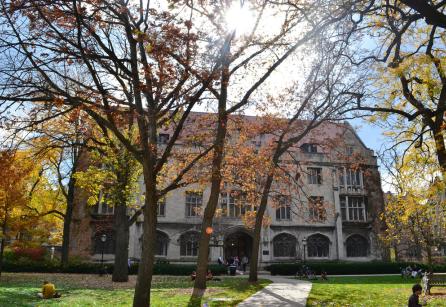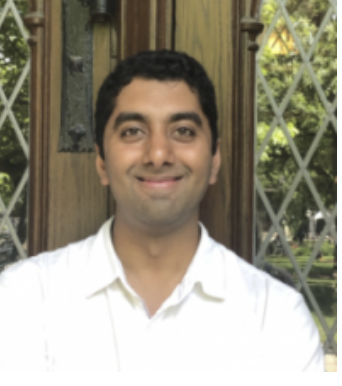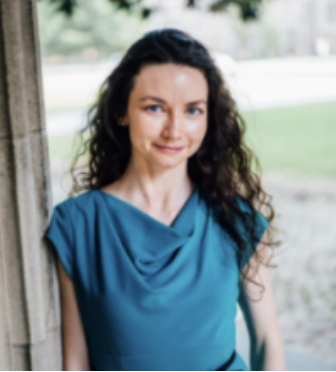News
New Faculty 2019-2020
August 18, 2019

We're delighted to announce three new faculty members who represent a wide range of expertise in the study of religion.
Sarah Pierce Taylor, Anand Venkatkrishnan, and Erin Galgay Walsh have joined our faculty and can currently be found teaching new courses for the Divinity School.

Dr. Taylor’s research focuses on gender and emotion in premodern religion in South India. In particular, her current book project, “Embodying Souls: Emotion, Gender, and Animality in Premodern South Asian Religion,” considers the soteriological tension in Jainism between experiencing and escaping the pleasures of the body. Her work is informed by theoretical developments in the study of gender, affect, embodiment, and animality. Additionally, Dr. Taylor is a scholar of classical (“Old”) and modern Kannada, the principal language of the modern Indian state of Karnataka and a language of great literary significance. Dr. Taylor’s work in Kannada has focused particularly on India’s Jain tradition, which figures centrally in the emergence of Kannada’s rich literary history.

Dr. Anand Venkatkrishnan’s book in progress, “Love in the Time of Scholarship: The Bhāgavata Purāṇa in Indian Intellectual History,” examines the relationship of bhakti (very roughly translated to "religion as lived affect") with philosophy as intellectual practice. His research at large concerns the social history of intellectual life, not only in early modern India, but also in the modern scholarly study of Hinduism. Dr. Venkatkrishnan’s work shows how the devotional religious practices of the Bhāgavata Purāṇa may not only have figured in the lives of specific families of elite Sanskrit intellectuals, but also fed back into their own contributions to the centuries-old traditions of scholarship with which they were famously associated. Further, Dr. Venkatkrishnan raises questions relevant to basic Dr. Venkatkrishnan’s book in progress, “Love in the Time of Scholarship: The Bhāgavata Purāṇa in Indian Intellectual History,” examines the relationship of bhakti (very roughly translated to "religion as lived affect") with philosophy as intellectual practice. His research at large concerns the social history of intellectual life, not only in early modern India, but also in the modern scholarly study of Hinduism. Dr. Venkatkrishnan also brings with him expertise in Sanskrit, Tamil, Spanish, Hindi, Latin, Greek, German, Persian, Urdu and the Indic scripts of Nagari, Sharada, Newari, and Grantha.

Dr. Walsh’s research examines the reception of female New Testament figures in Syriac and Greek liturgical poetry. Her interpretive commitments range from an interest in the subject positions available to women in the 5th and 6th century Syriac-speaking Christian communities, to the hermeneutic possibilities female biblical figures offer to male poets, granting them a diction through which new theological claims can be made. More broadly, her research interests include the history of Biblical interpretation, asceticism, religion and literature, and women and gender within the ancient world. She also brings us expertise in languages of early Christianity: Armenian, Greek, and Syriac.

